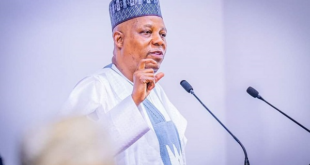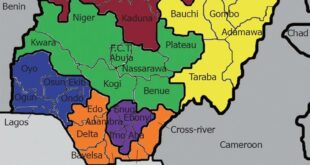By Lydia Ngwakwe
An economist, Prof. Akpan Ekpo, has advised the Federal Government to heed to the advice of the World Bank on multiple exchange rate and tread with caution.
Ekpo, Chairman, Foundation for Economic Research and Training in Lagos, told the News Agency of Nigeria (NAN) on Friday that multiple exchange rate was not good for Nigeria or any economy.
The President of the World Bank Group, David Malpass, had warned that Nigeria’s parallel exchange rate was harmful and could worsen future debt service payments and increase the risk of debt distress.
The economist said that two rates were better for Nigeria as the country was currently practicing a managed float exchange rate.
A managed floating exchange rate is an exchange rate system that allows a nation’s central bank to intervene regularly in foreign exchange markets.
It is to change the direction of the currency’s float and/or reduce the amount of currency volatility.
“Multiple exchange rates are not good for any economy. But I will support two rates; we don’t need too many.
“Right now, we have the Investors and Exporters window (I&E) and the black market window aside others.
“So, two rates are better because we have to manage our exchange rate as we are on a managed float exchange rate, and then the other rates should be like a close to a market rate.
“I think more than two exchange rates is not good, but one rate is difficult for an economy like ours because a dollar or the pound is not our currency.
“So, whatever we get, we have to manage it very well,’’ Ekpo said.
The professor of economics described the Naira stability in the investors and exporters window as “artificial stability.’’
He said that the stability of the Naira was also a question of demand and supply.
“The stability of the Naira standing at N465 per dollar at I & E window is a question of demand and supply, showing that a lot of foreign exchange has been coming in.
“Again, there’s a supply problem; that is why the disparity between the investors and exporter’s window is stable and the other rate is still very high, exchanging at N755 per dollar
“So we should not just look at the I & E window, we should look at the disparity between the official rate and the black market rate. The gap is too wide; it is the gap that we have to narrow.
“It is when we narrow that gap and it stays for a while that you can say there is stability,’’ he said.
(NAN)
Subscribe to the Advocate News letter and receive news updates daily in your inbox.
 Advocate.ng Latest news update on politics, entertainment, sport and more
Advocate.ng Latest news update on politics, entertainment, sport and more




